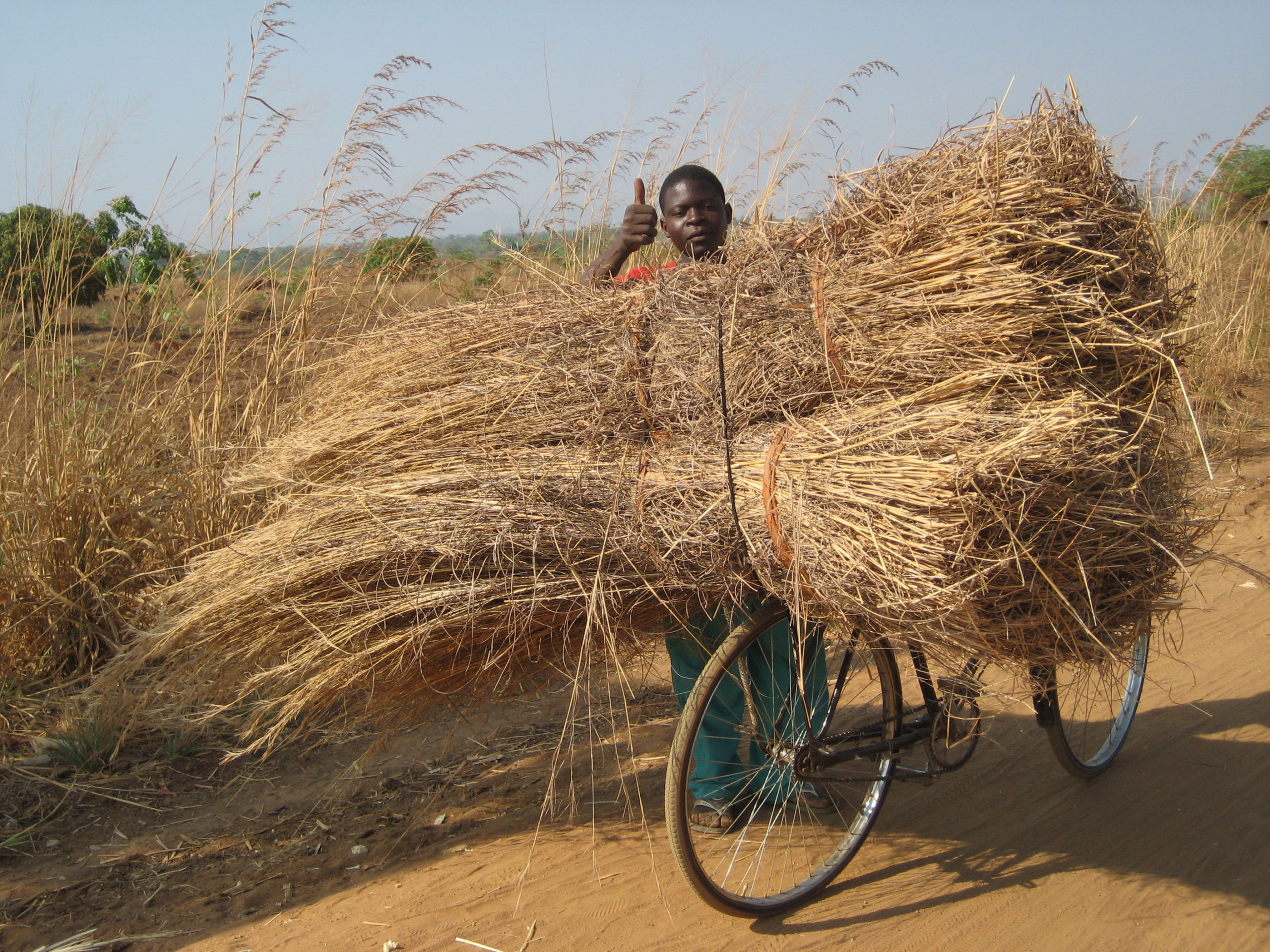Journeys back
A huge stack of grass wobbling along the uneven road surface on impossibly frail wheels? Oh, a thatch grass merchant, happily peddling his wares to his point of sale.
Each of the four bundles must weigh at least twenty kilograms, thirty, maybe. The rider would be another seventy or so. Nudging the limits of what the vehicle can bear, yes, but it is the ungainliness of it that leaves one incredulous.
Every year, when the sap of the elephant grass had drawn back to the roots for winter and the tall stalks have turned dry and yellow-white, he goes and finds the densest groves, and cuts and bundles and ties together with strips of bark, all day, for days. Then he hauls it along winding footpaths and tracks and roads, load by load, like here, for more days, to his place of sale.
It is a slow rhythm, followed without questioning, without review, every year. He has not made a simple trailer that he can pull behind his bicycle. He has not alternated the thick ends of the bundles to distribute the load more evenly. He has learned to keep his balance and avoid a disastrous fall along the winding footpaths, despite the inevitable crosswinds or sudden gusts as the heat starts to build.
Here, even though one is not yet in the wilderness, it is like a wilderness. If you venture here, what you are able to take with is likely what you will have. You have to be self-sufficient. If something breaks, you have to be able to improvise repairs. If you run out, the same.
All that can be taken for granted is that the sun will rise and set – and, importantly, that the people you might come across will be friendly, full of humour, and helpful within their limited means. Nothing else; not that a road will be passable, not that basic items will be on shelves, not that a filling station will have petrol.
This awkward pragmatism is commonplace in the Middle World; this strangely enigmatic world that gradually morphs from wilderness to civilisation. Here, the gears of civilisation are not yet meshing. Some are missing, others are engaged, but not quite. Still others have had tooth broken off here and there. These may end up fulfilling different functions, or get ground into abrasive pulp. Gears break all the time, and lose tooth, and are left, or sometimes improvise-repaired, each time at a lower notch of functionality. Occasionally a new gear appears miraculously. It uplifts a lot around it, from a low base, but slowly it follows the same pattern, and everything settles into a naturally sustainable equilibrium.
And so life lurches along, sadly happy on stoic pragmatism, ground-level innovation, charming improvisations, stark deprivations.


“Awkward pragmatism” ……I will use that phrase to describe my feelings about the multiple crises (political, social, racial, environmental) looming today in the US and around the world. Thank you, Hoffman, for the words I have been unable to articulate.